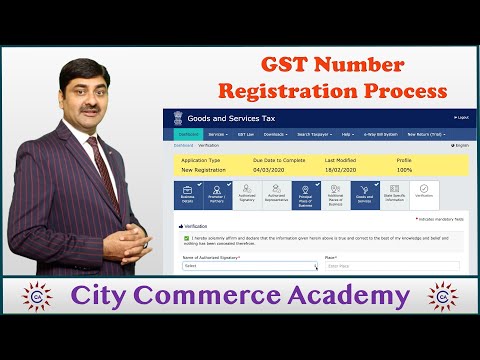Key Takeaway
- GST has unified the tax structure for bodies corporate, requiring them to register if annual turnover exceeds specified thresholds.
- Bodies corporate, including co-operative societies, private, and public companies, must adhere to strict GST compliance, such as regular filing and accurate invoicing.
- GST allows bodies corporate to claim input tax credits on business-related purchases, aiding in financial management and reducing overall tax burdens.
- Frequent changes in GST laws and the complexity of compliance pose significant challenges for bodies corporate, requiring ongoing vigilance and adaptation.
- Proper understanding and management of GST are crucial for bodies corporate to leverage benefits like input tax credits and maintain operational continuity.
Introduction
The Goods and Services Tax (GST) has significantly transformed the taxation landscape in India, streamlining multiple indirect taxes into one unified system. This change has brought clarity and consistency to tax obligations and compliance but also introduced new complexities, particularly for bodies corporate. Bodies corporate, which encompass entities like companies, cooperative societies, and residential associations, face unique challenges and opportunities under GST.
Understanding Body Corporate

In the context of GST, a body corporate is a legal entity recognized by statute and treated as a separate entity from its members or owners. This classification includes a range of entities such as corporations, limited companies, cooperative societies, and condominiums. Each of these entities can own property, incur debts, borrow money, have bank accounts, hire employees, and enter into contracts under its name.
Key Characteristics:
- Legal Entity: Bodies corporate are legally considered persons; they can sue or be sued in their name.
- Perpetual Succession: Unlike partnerships, bodies corporate continue to exist even if one or more members die or cease to be members, ensuring operational continuity.
- Central Management: Typically managed by a board of directors or a similar governing body, which handles the entity’s operations and makes decisions on behalf of all members.
GST Implications:
For GST purposes, bodies corporate are treated like any other business entity. They are required to register for GST if their annual turnover exceeds the threshold specified by the law, which is currently 20 lakhs in most states and 10 lakhs for special category states. This registration is crucial as it affects how they charge GST and claim input tax credits.
Understanding the nature and structure of a body corporate is fundamental to grasping its tax obligations under the GST regime. This knowledge ensures compliance with GST laws and helps in the efficient management of its operations and finances.
GST Registration for Bodies Corporate
For bodies corporate operating in India, understanding and managing GST registration is crucial for compliance and to take advantage of the tax system’s benefits. Here’s what needs to be considered:
When is GST Registration Mandatory?

GST registration is mandatory for bodies corporate if their annual turnover exceeds INR 20 lakh across most of India, or INR 10 lakh for those located in North-Eastern states and hill states identified as special category states under the GST Act. Additionally, if a body corporate makes taxable supplies from more than one state, it must obtain separate GST registrations for each state.
Voluntary Registration:
Even if the turnover does not exceed the threshold limit, a body corporate may choose to register for GST voluntarily. This decision might be strategic, allowing the entity to claim input tax credit right from the start of their business, which can be beneficial in setting off GST liabilities against GST paid on purchases.
Steps for GST Registration:
- Application: Registration is done online through the GST portal. Bodies corporate need to fill out Form REG-01, providing details like PAN (Permanent Account Number), business details, bank account details, and the authorized signatory’s details.
- Documentation: The process requires submission of documents such as proof of business registration, identity and address proof of promoters and the authorized signatory, and proof of business address.
- Verification and Approval: Upon submission, the application is verified by the tax authorities. If all details are found to be correct, a Certificate of Registration, bearing the unique GSTIN (GST Identification Number), is issued.
Compliance Post-Registration:
Once registered, the body corporate must comply with all GST provisions, which include issuing GST-compliant invoices, filing regular returns, and maintaining detailed records of all transactions. Non-compliance can result in penalties and legal issues.
Benefits of GST Registration:
Being GST registered allows a body corporate to improve its business credibility in the market. Registered entities can charge GST on their supplies, claim input tax credits on their purchases, and thereby reduce their overall tax burden. Moreover, registration ensures that a body corporate can seamlessly conduct business across state borders without any tax hassles.
GST Implications and Responsibilities for Bodies Corporate
For bodies corporate, navigating the Goods and Services Tax (GST) system involves understanding a broad set of implications and fulfilling specific responsibilities. These elements are crucial for maintaining compliance and optimizing financial operations under the GST regime.
Key GST Implications for Bodies Corporate:
- Taxable Events: Under GST, a taxable event occurs whenever there is a supply of goods or services. For bodies corporate, this means any transaction, including sales, transfers, barter, exchange, or lease made for a consideration in the course of business, triggers GST implications.
- Place of Supply: Determining the place of supply is crucial for bodies corporate, especially those operating in multiple states. This affects which state’s GST rate applies—interstate or intrastate—and impacts GST filing and payments.
- Time of Supply: Understanding when the GST liability arises, or the time of supply, is vital. For bodies corporate, the time of supply is generally the earliest of when an invoice is issued, payment is received, or goods/services are provided.
GST Responsibilities for Bodies Corporate:

GST Registration: As discussed, obtaining GST registration is mandatory for bodies corporate exceeding the prescribed turnover threshold. This is the first step in fulfilling GST obligations.
- Accurate Invoicing: Issuing accurate and compliant GST invoices is crucial. These invoices must include details such as GSTIN, the correct GST rate, and HSN/SAC codes. Proper invoicing ensures that both the input tax credit is correctly claimed and that compliance is maintained.
- Filing GST Returns: Bodies corporate must file periodic GST returns, which include details of sales, purchases, GST collected on sales, and GST paid on purchases. These filings are typically monthly or quarterly, depending on the turnover and the schemes opted for by the entity.
- Payment of Tax: After adjusting for input tax credit, the net GST must be paid to the government. This is usually done monthly and is critical to avoid any interest or penalties.
- Reconciliation: Regular reconciliation of the GST paid and the input tax credit claimed with the records maintained by the GST Network (GSTN) is necessary. This helps in identifying any discrepancies early and ensures compliance.
- Record Keeping: Maintaining comprehensive records of all transactions, GST payments, and input credits is mandatory under GST law. These records must be retained for a specified period in case of any future audits by tax authorities.
Compliance and Audit:
Bodies corporate should prepare for periodic audits by GST authorities, which can be triggered by discrepancies in returns or compliance issues. Being prepared with proper records and having a clear understanding of GST regulations is key to managing these audits effectively.
GST Rates Applicable to Bodies Corporate
Bodies corporate, like all business entities under the GST regime, must navigate various GST rates applied to different goods and services they purchase or sell. Understanding these rates is essential for accurate invoicing, tax filing, and claiming input tax credits. Here’s an overview of how GST rates are structured and their application to bodies corporate:
Overview of GST Rate Slabs:
GST rates are categorized into several slabs, which are generally 0%, 5%, 12%, 18%, and 28%. Additionally, some goods or services may also attract cess over and above the standard GST rate, especially those considered luxury items or sin goods.
Common GST Rates for Bodies Corporate:
- Standard Rate (18%): This is the most common GST rate applicable to a wide array of services and goods that bodies corporate might deal with. It includes most professional services, IT services, and trading of goods that do not fall into essential categories.
- Reduced Rates (5% and 12%): These rates apply to more essential services and goods. For instance, processed food items are generally taxed at 5%, while some construction materials used in building projects, like fly ash bricks, attract a 12% rate.
- High Rate (28%): Luxury goods and certain demerit goods such as automobiles, air conditioners, and tobacco products fall into this category. Bodies corporate dealing in these goods or using them in their operations need to account for this higher rate.
- Exempt Supplies (0%): Certain goods and services are exempt from GST. These include but are not limited to unprocessed agricultural produce, fresh milk, and educational services provided by educational institutions up to higher secondary.
Special Cases:
- GST on Real Estate and Construction: Real estate and construction-related activities, a common area for bodies corporate, have specific rates depending on the type of property and the construction status. For example, affordable housing benefits from a concessional rate, often lower than the standard rates.
- GST on Export Services: Services exported out of India are generally treated as zero-rated supplies under GST, meaning that while no GST is charged on the export, credit for the input taxes related to the export is available.
Impact on Pricing and Costs:
The application of these GST rates affects how bodies corporate price their products and services. Understanding and applying the correct GST rates ensures compliance and aids in financial planning by accurately forecasting tax liabilities and potential input tax credits.

Compliance and Updates:
It is crucial for bodies corporate to stay updated with any changes to GST rates and regulations, as these can directly impact their business operations and financial health. Regular updates from the GST council and maintaining compliance with the latest tax laws are essential practices.
Input Tax Credit for Bodies Corporate
One of the most significant features of the GST system is the Input Tax Credit (ITC), which allows businesses to reduce the taxes they owe on outputs (sales) by the amount of GST paid on inputs (purchases). Understanding how to effectively manage and claim ITC is crucial for bodies corporate to optimize their tax expenses and enhance cash flow efficiency.
Basics of Input Tax Credit:
- Eligibility for ITC: Bodies corporate are eligible to claim ITC on goods and services used in the course or furtherance of business. This includes raw materials, capital goods, and input services. However, there are specific restrictions and conditions under which ITC can be claimed.
- Conditions for Claiming ITC: To claim ITC, there are several prerequisites:
- The taxpayer should have a tax invoice or debit note issued by a registered supplier.
- The goods or services must have been received.
- The GST charged on such purchases must have been paid to the government either in cash or via ITC.
- The taxpayer must have filed GST returns, namely GSTR-3B.
Specific Considerations for Bodies Corporate:
- Blocked Credits: Certain items are not eligible for ITC under GST. These include goods and services used for personal consumption, expenditures that are statutorily barred like those on food and beverages, club memberships, and facilities for personal or employee use.
- Capital Goods: Bodies corporate can claim ITC on capital goods purchased for the business. However, if these capital goods are partly used for business and partly for personal or exempt supplies, the ITC must be proportionately claimed.
- Documentation: Maintaining proper documentation is critical for claiming ITC. This includes keeping all invoices and receipts that detail the GST paid. Additionally, maintaining digital records can aid in the efficient management of tax documents and facilitate easier audits.
Impact on Cash Flow:
Effectively managing ITC can have a significant positive impact on the cash flows of a body corporate. By reducing the net GST payable, ITC helps in keeping the operating costs low and enhances the working capital available for business operations.
Compliance and Reporting:
- Reconciliation: Regular reconciliation of the input tax credits claimed with the credits as per the GST portal (GSTR-2A and GSTR-2B) is essential to ensure that all credits claimed are valid and substantiated by corresponding invoices from suppliers.
- Reverse Charge Mechanism: In cases where a body corporate makes payments under the reverse charge mechanism, it must self-invoice and can claim ITC on these payments if the goods or services are used for business purposes.
Strategic Considerations:
- Optimization: Bodies corporate should review their procurement and GST compliance processes to optimize the available ITC. This might include choosing suppliers who comply with GST to ensure the availability and validity of input tax credits.
- Training and Awareness: Regular training sessions for finance and procurement teams can help in understanding the nuances of ITC and GST regulations, ensuring better compliance and effective use of credits.
Challenges Faced by Bodies Corporate Under GST

While the introduction of the Goods and Services Tax (GST) has streamlined tax processes for bodies corporate, it has also presented a set of challenges. These challenges require careful management and strategic planning to ensure compliance and optimize tax liabilities. Here are some of the common difficulties faced by bodies corporate under the GST regime:
Understanding and Compliance with Complex Regulations
- Complexity of Rules: GST laws and regulations are detailed and complex, particularly concerning the classification of goods and services, place of supply rules, and time of supply. Bodies corporate must fully understand these aspects to ensure accurate tax calculation and compliance.
- Frequent Amendments: GST regulations and rates have been subject to frequent changes since their inception. Keeping up with these updates requires constant vigilance and adaptability, placing a strain on the administrative resources of bodies corporate.
Managing Input Tax Credits
- Eligibility and Reconciliation Issues: Ensuring that all input tax credits are valid and substantiated by appropriate documentation can be challenging. Mismatches between the credits claimed and those approved as per GSTN data (reflected in GSTR-2A and GSTR-2B forms) can lead to tax liabilities.
- Blocked Credits: There are certain restrictions on claiming input tax credit under GST, especially on goods and services not directly related to the business or those used for personal consumption. Navigating these restrictions can complicate the accounting processes.
Compliance Costs and Administrative Burden
- Increased Administrative Burden: Compliance with GST requires meticulous record-keeping, regular filing of returns, and reconciliation of input tax credits. This increases the administrative burden, particularly for smaller bodies corporate with limited resources.
- Cost of Compliance: The cost associated with updating systems and training staff to be compliant with GST norms can be substantial. This includes investments in compliant accounting software and possibly hiring tax professionals.
Integration with State Laws
- Interstate Supply Challenges: For bodies corporate operating in multiple states, understanding and complying with the integrated GST (IGST) on interstate supplies adds an additional layer of complexity.
- Variations in State Implementations: While GST is a central framework, the execution and minor regulations can vary from state to state, creating confusion and potential compliance risks.
Legal and Financial Implications
- Penalties for Non-Compliance: Failure to comply with GST regulations can result in hefty penalties, interest on unpaid taxes, and severe legal consequences.
- Cash Flow Implications: The requirement to pay GST upfront and claim credits later can impact the cash flows, especially of those bodies corporate that operate on tight margins.
Technical Challenges
- System Integration: Integrating existing financial and accounting systems with GST requirements can be technically challenging and resource-intensive.
- Data Security Concerns: As GST filing and compliance are predominantly online, ensuring data security and protecting sensitive financial information become paramount.
FAQs
How does GST impact a co-operative society?
A co-operative society, like other bodies corporate, must register for GST if its turnover exceeds the threshold limits. This registration allows the society to charge GST on taxable supplies and claim input tax credits. The compliance and record-keeping requirements under GST help ensure transparency and efficiency in the financial operations of co-operative societies.
Are foreign companies treated differently under GST?
Foreign companies operating in India are treated as bodies corporate for GST purposes and must register for GST if they exceed the turnover threshold or make taxable supplies in India. They face the same tax obligations as domestic companies, including filing returns and paying GST on taxable transactions.
What are the GST obligations for a personal company?
A personal company, typically a private company owned by an individual or a family, must comply with GST regulations if its annual revenue crosses the specified threshold. This includes registering for GST, filing periodic returns, paying taxes on time, and maintaining detailed transaction records to support claims for input tax credits.
How does GST registration benefit a private company?
Registering for GST offers several benefits to a private company, such as the ability to claim input tax credits on business expenses, which can significantly reduce overall tax costs. Additionally, GST registration enhances the company’s credibility with business partners and clients, as it reassures them of the company’s adherence to tax laws.
What are the GST filing requirements for a public company?
A public company must file GST returns monthly or quarterly, depending on its turnover and the scheme it opts for under GST. These filings must detail all taxable transactions, GST collected on sales, and GST paid on purchases. Timely compliance helps avoid penalties and ensures the company can claim input tax credits effectively.
How does the GST framework affect an enterprise’s supply chain?
Under GST, an enterprise must carefully document all transactions across its supply chain to claim input tax credits accurately. The need to align supply chain processes with GST compliance can lead to more streamlined operations and potentially lower costs due to the minimization of tax cascading.
What challenges do bodies corporate face in managing GST compliance?
Managing GST compliance can be challenging for bodies corporate due to the need for accurate bookkeeping, regular tax filing, and reconciliation of input tax credits. Enterprises must invest in training and technology to manage these requirements efficiently, ensuring they comply with the law while maintaining optimal operational performance.








